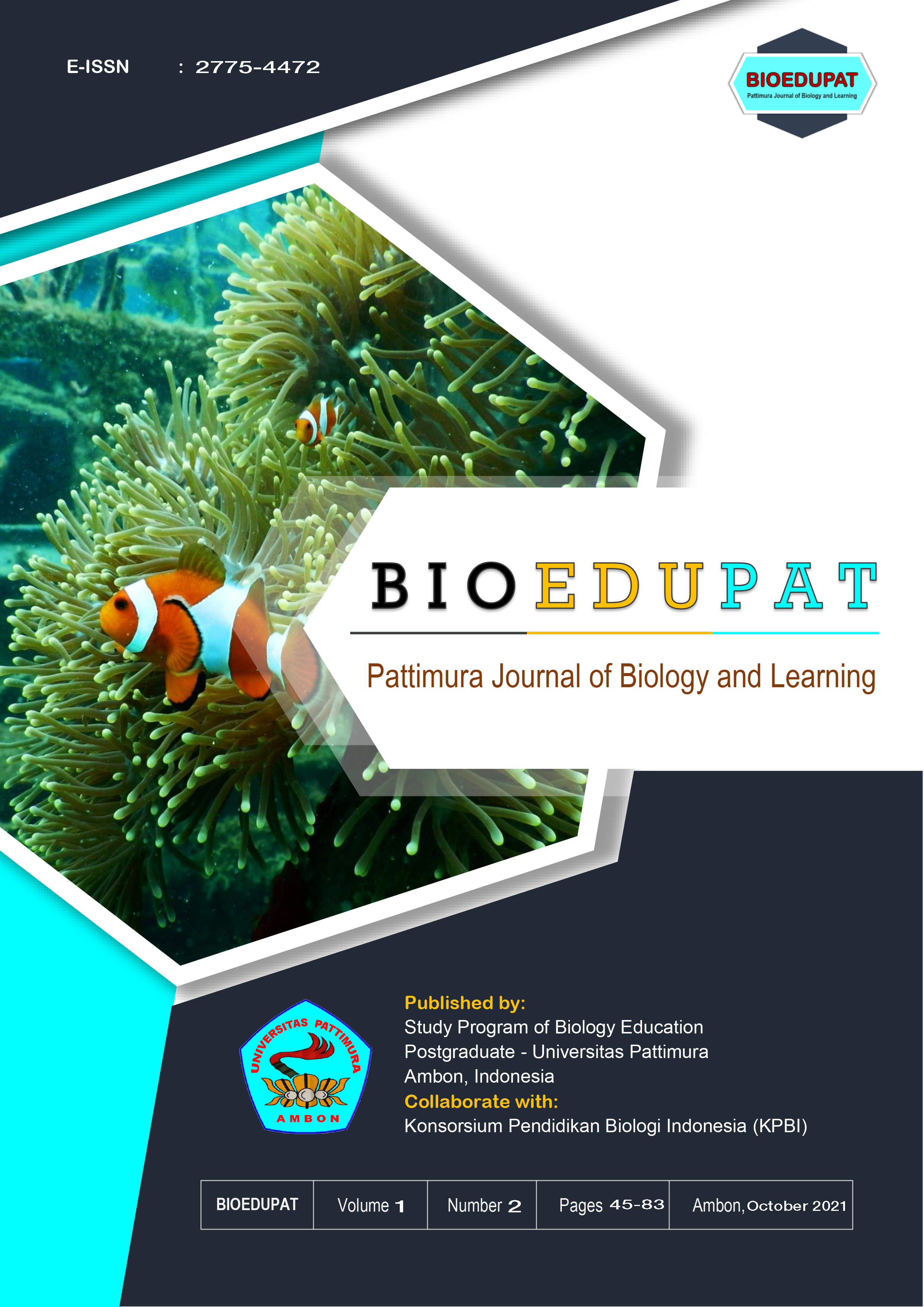The effect of black cumin oil (Nigella sativa) on the reproduction of male Wistar rats
Abstract
Nigella sativa oil is antioxidant compound has the effect that serves to prevent cellular damage. The effect of Nigella sativa oil in the motility and total count of spermatozoa wistar rats. Experimental research with the design of post test only control group design. Wistar rats consists of 24 head and divided into 4 groups consist of control and treatment group. The control group was distilled. The first treatment was of Nigella sativa oil everydays as much with dose 150 mg/kgbw, 250 mg/kgbw, and 350 mg/kgbw, for 16 days, . Statistic test for motility and count of sperm wistar rats use the Kruskal-Wallis followed by Mann Whitney test. Avarage value of motility in the control (21.67±9.832) its lower than treatment. In dose 350 mg/kgbw its highest (52.33±13.292) compare in the treatment 250 mg/kgbw (40.67±17.512) and 150 mg/kgbw (30.67±8.165). avarage value of count sperm in the control (130.83±41.877) its lower than treatments. In dose 350 mg/kgbw its highest (199.67±23.480) compare in the treatment 250 mg/kgbw (187.50±74.538) and 150 mg/kgbw (140.83±32.568). Administration of Nigella sativa oil occur to enhancement motility and number of spermatozoa wistar rats.
Downloads
Copyright (c) 2021 Syahran Wael, didik wahyudi, Tayeb wael, Zaid Mohamed Jaber

This work is licensed under a Creative Commons Attribution-NonCommercial-ShareAlike 4.0 International License.
Authors who publish with BIOEDUPAT: Pattimura Journal of Biology and Learning agree to the following terms:
- Authors retain copyright and grant the journal right of first publication with the work simultaneously licensed under a Creative Commons Attribution License (CC BY-NC-SA 4.0) that allows others to share the work with an acknowledgment of the work's authorship and initial publication in this journal.
- Authors are able to enter into separate, additional contractual arrangements for the non-exclusive distribution of the journal's published version of the work (e.g., post it to an institutional repository or publish it in a book), with an acknowledgment of its initial publication in this journal.
- Authors are permitted and encouraged to post their work online (e.g., in institutional repositories or on their website) prior to and during the submission process, as it can lead to productive exchanges, as well as earlier and greater citation of published work.









 This work is licensed under a
This work is licensed under a 